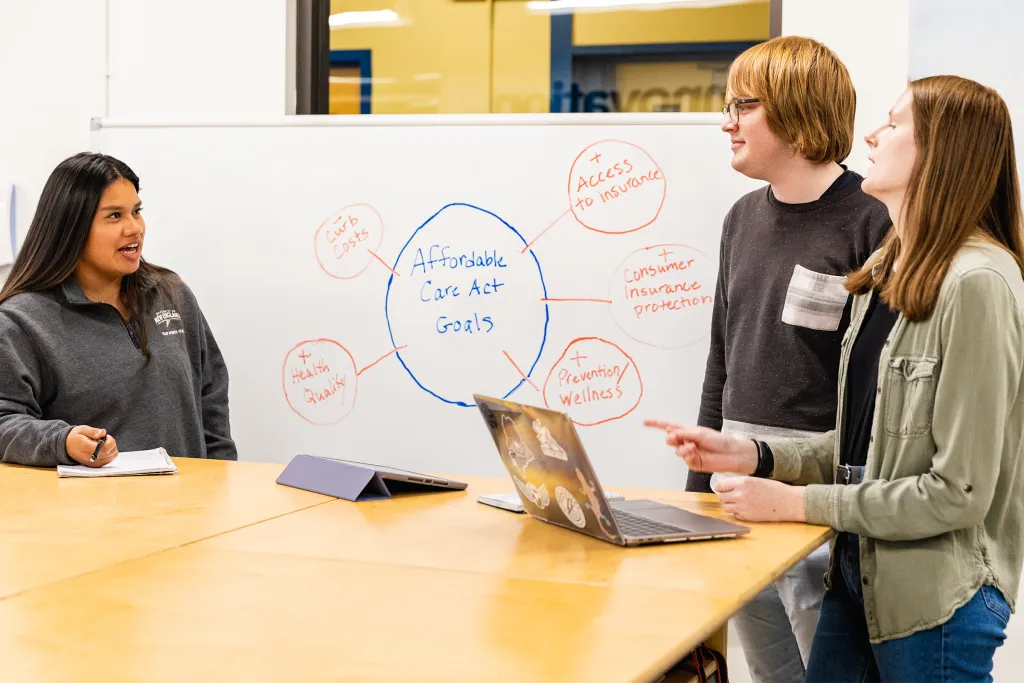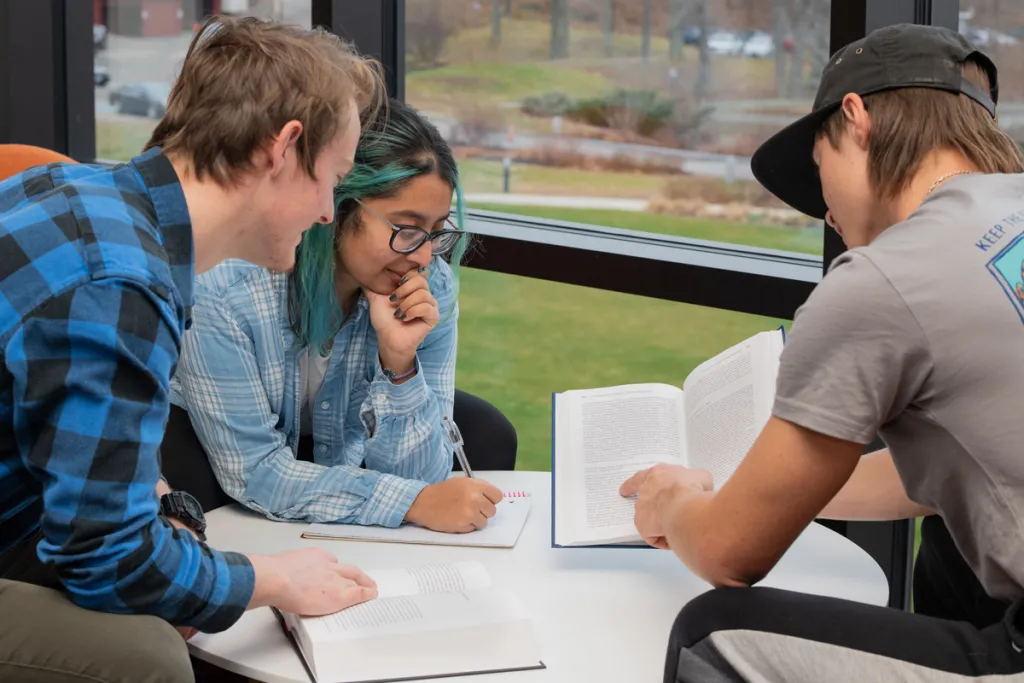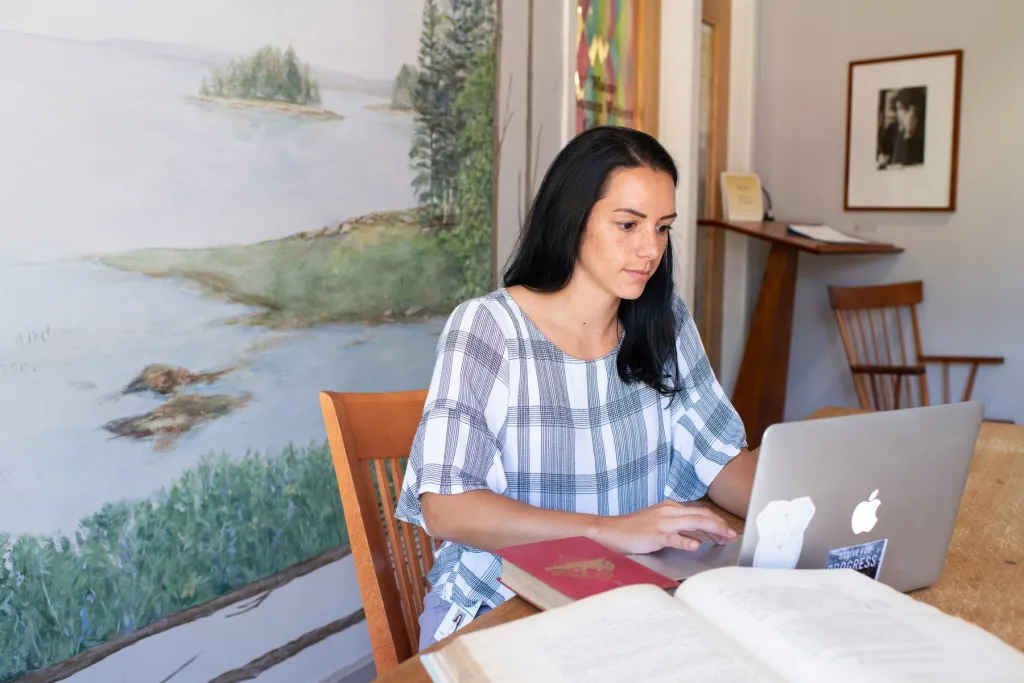
What Will You Study? Applied Social and Cultural Studies Degree Curriculum Overview
Examples of Available Concentrations
Health, Medicine, and Society
Examine health, illness, disability, and mental health issues as well as health care systems. (Ideal for a career in public health, health administration, or mental health)
Society, Community, and Human Services
Study the constituents and institutions involved in community service and development. (Ideal for a career in social work, human services, or community development/education)
Law, Crime, and Society
Explore how society defines and responds to crime, while contemplating the relevance of class, race, gender, and age. (Ideal for a career in law or criminology)
Curriculum
| Nor’easter Core Requirements | Credits |
|---|---|
| Total Credits | 40 |
| Program Required Courses | Credits |
|---|---|
| SOC 268 – Practice of Social Research | 3 |
| SOC 270 – Classical Social Theory or SOC 280 – Contemporary Social Theory | 3 |
| SOC 300 – Internship | 3 |
| SOC 370 – Applied Field Methods | 3 |
| Applied Capstone Experience (see below) | 9–16 |
| Four (4) Courses from Applied Concentration (see below) | 12 |
| Total Credits | 33–40 |
| Select Three (3) of the Following Courses: | Credits |
|---|---|
| ANT 101 – Introduction to Anthropology or ANT 102 – Cultural Anthropology | 3 |
| PSC 105 – Introduction to Political Science | 3 |
| PSY 105 – Introduction to Psychology | 3 |
| SOC 150 – Introduction to Sociology | 3 |
| Total Credits | 9 |
| Open Electives (as needed to reach 120 credits) | Variable |
| Minimum Total Required Credits | 120 |
|---|
Please note: While some courses can fulfill both core and program requirements, the credits earned do not count twice towards the minimum total required credits for the degree.
Applied Capstone Experiences (ACE)
Internship
Students may take between nine (9) and sixteen (16) credits to complete this ACE. Students may select from over seven hundred and fifty (750) sites in the Civic Engagement database. This learning opportunity should parallel the student’s concentration and help them to gain experience, skills, and knowledge of how systems work and how to develop contacts in a given field.
Thesis
Students may take between nine (9) and sixteen (16) credits to complete this ACE. The thesis should build on work the student has done in the ASCS major and their chosen concentration. This academic work should prepare them for graduate study in disciplines that have been incorporated into their concentration.
Study Abroad
Students will typically take fifteen (15) to sixteen (16) credits to complete a study abroad experience. While studying in a foreign society and culture is important, the primary focus is to take courses from the new institution that will help the student develop their areas of interest as they relate to the major. In short, there needs to be an integrated social science experience that drives the study abroad learning and the opportunity to explore a new society and culture for this to be a successful experience. All study abroad experiences should first be cleared with their advisor and the director of the School of Social and Behavioral Sciences, to see if they qualify to meet the requirement for the Capstone.
Applied Concentration
There are two (2) concentrations in the ASCS major: Health, Medicine, and Society; and Law, Crime, and Society. As soon as possible after arriving at UNE, students should declare their major. By the end of their second year, students should declare their concentration. There are no required courses in any concentration. In each concentration, students, in consultation with their advisor, select four (4) courses from a variety of disciplines that will help them build foundations, skills, and develop expertise in their chosen concentration.
Health, Medicine, and Society
| Course Options Include (but are not limited to) | Credits |
|---|---|
| ANT 211 – Medical Anthropology | 3 |
| PSC 325 – Politics and Public Health | 3 |
| SOC 228 – The Sociology of Aging | 3 |
| SOC 275 – The Sociology of Food and Health | 3 |
| SOC 355 – Medical Sociology | 3 |
Law, Crime, and Society
| Course Options Include (but are not limited to) | Credits |
|---|---|
| ANT 224 – Forensic Anthropology and Human Rights | 3 |
| CMM 411 – Communication, Law, and Regulation | 3 |
| PSY 252 – Forensic Psychology | 3 |
| PSY 255 – Social Psychology | 3 |
| SOC 170 – Deviance and Crime | 3 |
| SOC 333 – Sociology of Law | 3 |
| SOC 421 – A Just Society? | 3 |
Students in this major can participate in the pre-health graduate school preparation tracks.
To learn more about the program see the Academic Catalog.

Career Paths for Applied Social and Cultural Studies Majors
The skill set you develop as an Applied Social and Cultural Studies major includes critical thinking, communication skills, the ability to see things through different lenses, and professional skills acquired from internships. You’ll be equipped to enter the workforce across a broad spectrum of fields.
Our graduates have pursued many rewarding professions, including:
- Lawyer
- Public Health Specialist
- Social Worker
- Community Organizer
- Health Administrator
- Human Relations (HR) Administrator
- Non-Profit Administrator
- ESL/ELL Teacher
- Diversity Officer
Career Advising for B.A. in Applied Social and Cultural Studies Students
Whether you have a specific career goal in mind or a vague idea of the field that interests you, Career Advising is here to help you plan your next step.
Go Beyond the Classroom with Applied Social and Cultural Studies
International Medical Missions
As an Applied Social and Cultural Studies major, you can choose to travel to Latin America with the Pulse Club, which leads medical volunteer missions in countries such as Costa Rica and Ecuador.
Experiential Learning in the B.A. in Applied Social and Cultural Studies Program
The driving force of this program is real-world learning. Whether you’re performing fieldwork, interning, or traveling abroad, hands-on opportunities are found at every turn in your journey.
Internships for Applied Social and Cultural Studies Majors
Our database of more than 900 internship sites allows you to gain valuable professional experience in a field you want to explore. Our graduates have interned with legal services organizations, international charities, downtown community organizations, public access television stations, and many other groups.
For more information, contact Sam McReynolds, Ph.D., at (207) 602-2765 or smcreynolds@une.edu.

Senior Capstone Experience
As an Applied Social and Cultural Studies student, you choose a capstone experience to widen the scope of your expertise. There are three ways to fulfill the applied capstone experience (ACE).
Internship
You may take between 9 and 16 credits to complete this ACE. You may select from more than 800 sites in the departmental database. This learning opportunity should parallel your area of interest and help you gain experience, skills, and knowledge of how systems work and how to develop options in a given field.
Thesis
You may take between 9 and 16 credits to complete this ACE. The thesis should build on the work you have done in the Applied Social and Cultural Studies major. This academic work should prepare you for graduate study in disciplines that have been incorporated into your study.
Study Abroad
It typically takes 15-16 credits to complete a study abroad experience. While studying in a foreign society and culture is important, the primary focus is to take courses from the new institution that will help you to develop your areas of interest as it relates to your major. In short, there needs to be an integrated social science experience that drives the study abroad learning as well as the opportunity to explore a new society and culture for this to be a successful experience. All study abroad experiences should first be cleared with the department chair to see if they qualify to meet the requirement for the capstone.
Apply Today
Ready to begin your future in UNE’s Bachelor of Arts in Applied Social and Cultural Studies? Get started today.
